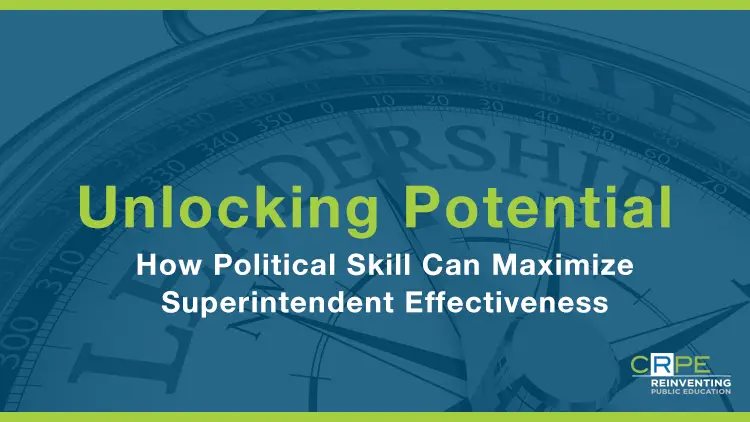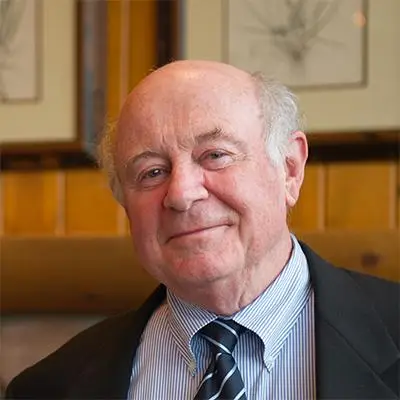Some years ago CRPE published An Impossible Job? A View from the Urban Superintendent’s Chair. It detailed the many things stacked against a district superintendent’s success, including politics, bureaucracy, union dominance of school boards, and short tenures.
These findings still apply; yet now as then some local superintendents are making a success of the job. They succeed not because the job is easy or because they have extraordinary powers, but because they find ways to influence how others see their own interests and how they act.
In a new report, Unlocking Potential: How Political Skill Can Maximize Superintendent Effectiveness, we delve into the roots of superintendents’ influence and focus on how they develop and use their political skills. Though political skill is often cited as the reason for a particular individual’s success, it is seldom an explicit topic in formal training. In fact, many superintendents praised for their political skill have entered the profession from other careers—for example, law and general government.
We start with the premise that superintendents’ formal powers are never adequate to the challenges they face, so success depends on influencing independent parties:
A superintendent who wants to accomplish something important—e.g., putting in place new reading or math curriculum, improving teacher skills, providing schools more flexibility, or using chartering to create new options—must work through others on whose enthusiasm and skill the results will depend. The same is true if a district faces enrollment declines or rapid changes in student population requiring major changes in spending, staffing, and methods. Superintendents can identify problems and point to solutions, but they (and their districts) will fail if they can’t get action and if others (central office staff, principals, teachers, independent providers, parents) respond grudgingly and fail to fully use their skills and imagination.
In seeking a framework for analysis of ways superintendents might try to increase their influence, we turned to Richard E. Neustadt’s 1960 classic, Presidential Power. Neustadt shows how the presidency, like the superintendency, is weak in light of all the events that the president must influence in order to achieve anything. (We explained Neustadt’s framework in much greater detail in an earlier paper on the powers of state superintendents.) The book lays out three principles, which we have reworded to apply to superintendents:
- A superintendent cannot accomplish a great deal entirely on their own authority. The best use of the clear authorities the superintendent does possess is in bargaining and building coalitions by offering or threatening to take particular actions in exchange for actions to be taken by others.
- A superintendent’s ability to make bargains depends on their professional reputation, which can be enhanced by having clear goals, being resilient, being a trustworthy and reliable ally, and following through.
- In taking any action, a superintendent should consider its consequences for their power—for example, their ability to bargain effectively in the future.
We provide examples of how savvy superintendents can find ways through interest group and legislative tangles, and overcome resistance within the school system by creating new alliances locally and in the state capitol. We also show how superintendents can exercise influence by forming “strange bedfellow” alliances with higher education, business, and other city and state agencies focused on workforce and economic development.
The traditional vision of the superintendent as a high priest of instructional method who works only within the community of professional educators is grievously limiting. So is the image of the superintendent as a pure administrator, who works within a fixed institutional structure and sticks to their prescribed duties. A person who knows only one aspect of the role needs to get out of their comfort zone.
We think this report can fill a gap in superintendent preparation and support. We intend it as a resource for current and aspiring superintendents; for community leaders who advise, collaborate with, or hire superintendents; for professors in schools of education; and for other entities offering district leader pre-service training. It is hard to prepare for a role that is not well understood. We hope it will help attract and prepare people from inside and outside education who want to do all of the superintendent’s job, not just a familiar part of it.
Local politics and the means of superintendent selection will determine how far a particular superintendent can take these ideas. However, our final message is that any superintendent who says, “This political stuff is not for me,” accepts unnecessary limits on their ability to improve education and serve children.




